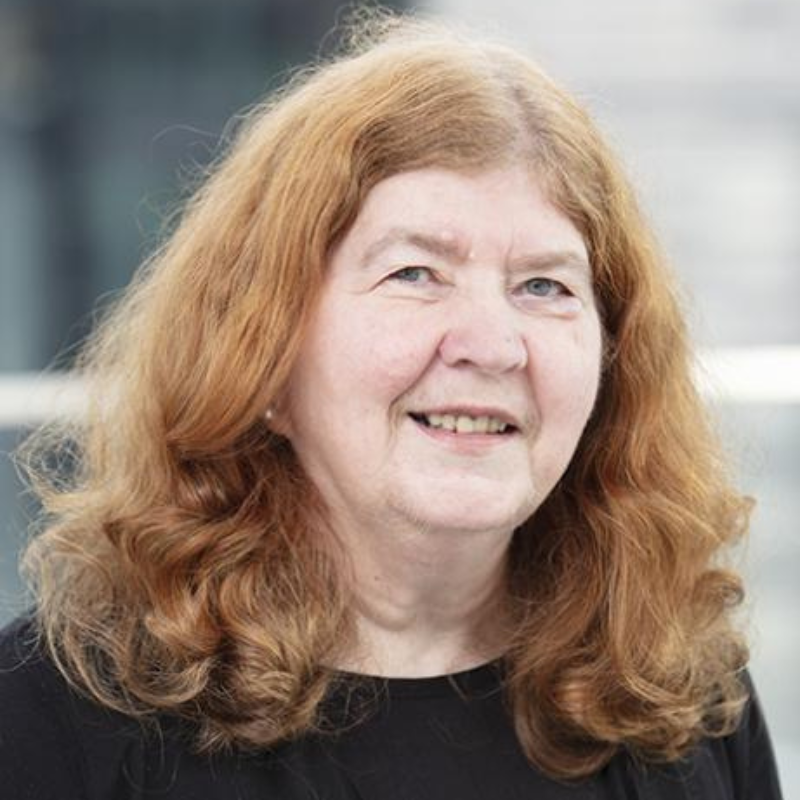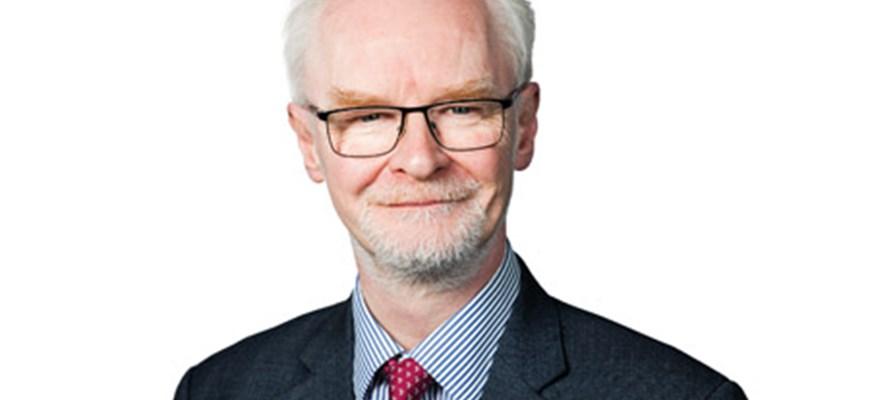The Scottish Government, Scottish Parliament, Ministers and MSPs control legislation, policy and spending decisions directly impacting upon the activities of all organisations and people in Scotland. Informed, good decision making is important in good times, but absolutely critical in bad times. These are bad times. War in Ukraine, a weakening domestic and global economy, high inflation, constitutional uncertainty, volatile UK Government and its stark consequences for public finances and public spending - all while still in the after effects of pandemic - require the best judgement. So, in the midst of wave after wave of uncertainty buffeting Scotland's public services, private sector and third sector, it is essential to understand how to effectively influence, inform and connect with the key decision makers as they respond to the challenges ahead.
This conference examines how Scottish Government, Scottish Parliament, Ministers and MSPs work and explains the policy and media context within which decision making in those organisations takes place. It is intended for people and organisations that need to inform and support policy making and decision making in our institutions.
The ways in which policy is made, legislation is developed and spending decisions are taken is subject to both specific processes and to a range of external and internal influences. Understanding what those processes are and how both these institutions and the individuals within them work is essential. So too is knowing the importance of the media and the political context in which government operates. As is being aware of the regulatory and political rules and conventions within which influencing takes place.
The purpose of this conference is to provide you with a step-by-step guide to making your voice heard in the corridors of power. It will give insight into the relationship between Government, Parliament politicians and media and explain the various stages and ways in which policy is developed and how decision making can be influenced.
Whether your interest is in development of legislation, policy making, ongoing constitutional change or spending decisions, the how and why of government and parliamentary decision making - and context in which those decisions are made - is pivotal. The conference looks at the institutions that matter, the types of external influence that count and what you need know about the instruments and practices needed to to be heard at the highest level.
If you want to develop a better understanding of how governmenr works in Scotland, and to be a weather maker on policy before it is made rather than reading what policy has become once decisions are taken, then knowing how the system really works - and how to influence it - is essential.
Benefits of attending
Who should attend

Deputy Leader of the Scottish Labour Party, Shadow Cabinet Secretary for NHS Recovery, Health and Social Care and Drugs Policy and MSP for Dumbarton

Member of Parliament for Dunfermline and Dollar
Scottish Labour Party

Assistant Lobbying Registrar
The Scottish Parliament

former Director
Baccus Consulting

Director of Public Policy
Pinsent Masons

Founder/Director
Message Matters

Director
Pagoda PR

Communications and Compliance Support Manager
The Scottish Parliament

Director of Public Law
Morton Fraser

Director of Law Reform
Law Society of Scotland
09:25 Chair's opening remarks
Michael Clancy, Director of Law reform, Law Society of Scotland
Lawscot
Session 1: Influencing – understanding Parliament, lobbying rules and the current political context
09:30 Keynote – Understanding the Scottish Parliament
Jackie Baillie MSP, Party Spokesperson on Health, Scottish Labour, Scottish Parliament
ScotParl jackiebmsp
09:45 Complying with the Lobbying Register – good practice and new developments
James Drummond, Assistant Lobbying Registrar, The Scottish Parliament
Fiona Sinclair, Communications and Compliance Support Manager, The Scottish Parliament
SP_LobbyingScot
10:00 The Scottish and UK political context – what is the state of play and where are we headed?
Andy Maciver, Founder/Director, Message Matters
MessageTweet akmaciver
10:15 Question and answer session
10:30 Comfort break
Session 2: The decision makers and how they work
10:45 The Scottish Parliament – how it works
Colin McFarlane, Director, Pagoda PR
PagodaPR
11:00 The Scottish Government – how it really works
Lynda Towers, Director of Public Law, Morton Fraser
MortonFraserLLP
11:15 Understanding the political parties – what do you need to know?
Andrew Henderson, Director of Public Policy, Pinsent Masons
Pinsent_Masons
11:30 Question and answer session
11:45 Comfort break
Session 3: How to influence
12:00 Messaging, media and social media – how to use them
Graeme Downie, Director, Orbit Communications
Orbit_Agency
12:15 Instruments of Influence – briefings, meetings, social media and beyond…
Lynda Gauld, former Director, Baccus Consulting
LG01
12:30 Question and answer session
12:45 Chair's closing remarks
Michael Clancy, Director of Law reform, Law Society of Scotland
Lawscot

Jackie Baillie MSP
Deputy Leader of the Scottish Labour Party, Shadow Cabinet Secretary for NHS Recovery, Health and Social Care and Drugs Policy and MSP for Dumbarton
Jackie has represented Dumbarton Constituency since 1999 when the Parliament was first created. Prior to this she worked both in the public and voluntary sector most recently as a Community Economic Development Manager for a local authority.
Following the inception of the Scottish Parliament in 1999, she served as Deputy Minister for Communities under then First Minister Donald Dewar, before being promoted to Social Justice Minister.
After the May 2007 Scottish Parliament elections Jackie returned to Labour’s front benches as Shadow Minister for Parliamentary Business. In 2008 she was appointed to a newly created position as Labour’s Chief of Staff in the Scottish Parliament before becoming Shadow Cabinet Secretary for Health, Wellbeing and Cities Strategy in 2009.
Jackie has also since taken on roles as Shadow Cabinet Secretary for Social Justice, Equalities and Welfare and spokesperson for the Economy, Jobs and Fair Work. She was also the first woman to take on the role of Shadow Cabinet Secretary for Finance.
In 2020, she became Deputy Leader of Scottish Labour and is now Shadow Cabinet Secretary for NHS Recovery, Health and Social Care and Drugs Policy.

Graeme Downie MP
Member of Parliament for Dunfermline and Dollar
Scottish Labour Party
Graeme Downie is the Labour MP for Dunfermline and Dollar and has been an MP since 4 July 2024. Before being elected, Graeme served as a councillor for West Fife & Coastal Villages and ran his own business.
He worked in communications for over twenty years, building strategic campaigns for organisations to educate, influence and help deliver their agenda. He has worked in consultancy in London and Brussels.


Lynda Gauld
former Director
Baccus Consulting
Prior to establishing Baccus Consulting, Lynda was Head of External Affairs at Pfizer with responsibility for all aspects of External Affairs for Scotland and Northern Ireland. During her ten years with Pfizer, Lynda managed a number of highly successful partnership relationships and sought to identify new approaches to policy development in her field. She has obtained considerable experience in managing issues and corporate change.
Before working in the pharmaceutical sector with Pfizer, Lynda spent twenty years in the NHS as a nurse and a manager and three years as Regional Manager of the Institute of Health Services Managers (now Institute of Healthcare Managers) and has a strong working knowledge of the NHS and the public sector, its successes and challenges.

Andrew Henderson
Director of Public Policy
Pinsent Masons
Andrew Henderson joined Pinsent Masons in 2016, before which he was Head of Public Affairs and External Relations at a new challenger bank being created from within one of the UK’s largest financial services companies.
Andrew has over 20 years’ experience in the public policy and strategic communications industry, operating across Edinburgh, London and the UK regions, and has advised a broad range of major PLCs, SMEs, third sector, and other organisations on their dealings with government, media and other influential stakeholders.
Educated in Politics at the University of Edinburgh, Andrew also has an MBA and is a member of both the Chartered Institute of Marketing (CIM) and the Chartered Institute of Public Relations (CIPR).
Formerly a board member of Citizens Advice Edinburgh, and the Rock Trust, Andrew currently sits on the board of Edinburgh World Heritage.

Andy Maciver
Founder/Director
Message Matters
Andy has over 20 years of experience in politics and PR in the public, private and charity sectors and, since co-founding Message Matters, in consultancy.
His expertise is in strategic communications and corporate positioning, helped by long-standing relationships across the political spectrum and throughout the media. He is also a regular independent political commentator on the BBC and STV, has a regular column in The Herald, and is co-host of Holyrood Sources, the most listened to Scottish politics podcast.

Colin McFarlane
Director
Pagoda PR
The corridors of power are as familiar to Colin as his native Falkirk, having worked at both Holyrood and Westminster. He is a shrewd political operator who enjoys the strategic planning that places Pagoda's clients in front of the right people. He understands the complexities of influence and how to weave them seamlessly for the best result.

Fiona Sinclair
Communications and Compliance Support Manager
The Scottish Parliament
Fiona joined the Scottish Parliament in 2005, working across roles in the Committee and Chamber offices. Fiona has been part of the Lobbying Register Team for the past five years, recently taking on the role of Communications and Compliance Support Manager.

Lynda Towers
Director of Public Law
Morton Fraser
Lynda is director of public law within our Litigation division based in Edinburgh.
Lynda has spent most of her career with the Scottish Government, advising on public law issues. She has been involved in instructing and drafting legislation and has had considerable experience in public sector litigation in courts in Scotland and across the UK. She specialised in judicial review challenges, planning and other statutory appeals and in general reparation.
Lynda spent 8 years as Solicitor to the Scottish Parliament where she advised the Presiding Officer, the Chief Executive and the Committees of the Parliament on matters of legislative competence and on wider issues of public law. Lynda has a significant breadth of understanding of public and constitutional law issues in Scotland, of related litigation and of the policy and process surrounding law and decision making.

Michael Clancy
Director of Law Reform
Law Society of Scotland
Michael P Clancy OBE WS graduated from the University of Glasgow in 1979 with an LLB and in 1985 with an LLM. In 1987 he graduated LLB (Hons) from the University of London. He is a solicitor and Notary Public. After qualification as a solicitor in private practice he had attained a partnership with the Glasgow firm of Franchi Wright & Co. He resigned this partnership in 1988 to become a Deputy Secretary of the Law Society of Scotland. Since 1996 he has been a Director of the Society with responsibility for Law Reform. He is secretary of the United Kingdom and Ireland Notarial Forum and is chairman of the International Bar Association’s Constitution and Governance Committee. Following the EU Referendum, he has represented the Law Society of Scotland on Brexit issues in the UK and Scottish Parliaments, appearing several times before parliamentary committees on a range of issues concerning the UK’s departure from the EU. He is a member of the International (formerly Brexit) Law Committee established by the Lord Chancellor and the Lord Chief Justice of England. He was awarded an OBE in the Queen’s Jubilee Birthday Honours List in June 2002.
This conference will take place online.
How to book
You can book to attend, or order the video only, in 3 ways:
Conference fees
Group discount – organisations booking 3 or more delegates will receive every third delegate place free of charge (please complete further forms if necessary)
Payment
We do not currently accept payments online and will send you an invoice.
You have the option of paying by BACS or card.
BACS details will be included on the invoice.
If you wish to pay by card, please tick the appropriate box on the booking form and a member of our staff will contact you by telephone to take the payment. Alternatively you may call 0131 556 1500.
Terms and conditions
By placing this booking, you agree to the full terms and conditions found via the link at the foot of our website.
Book delegate places or purchase video recording.

